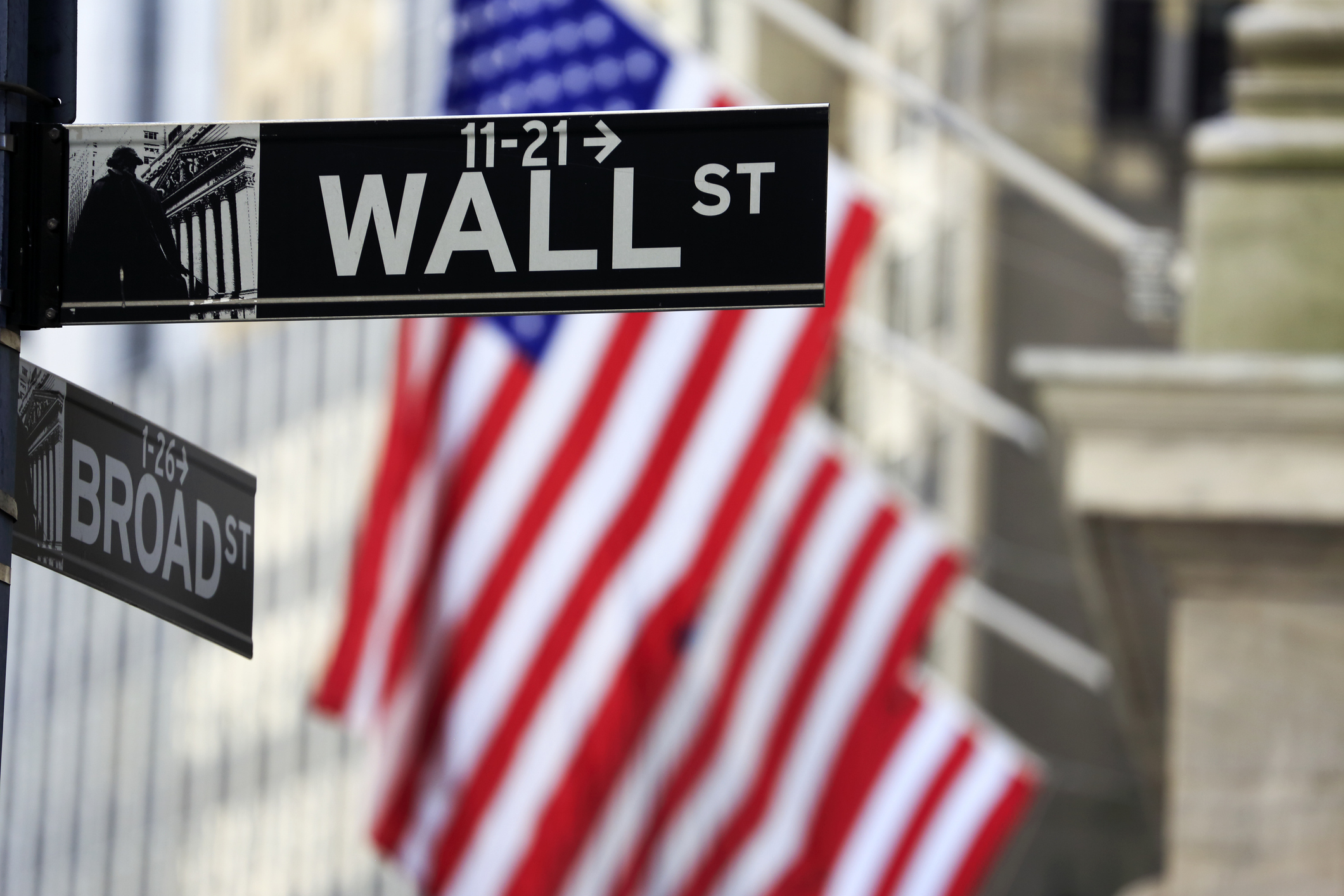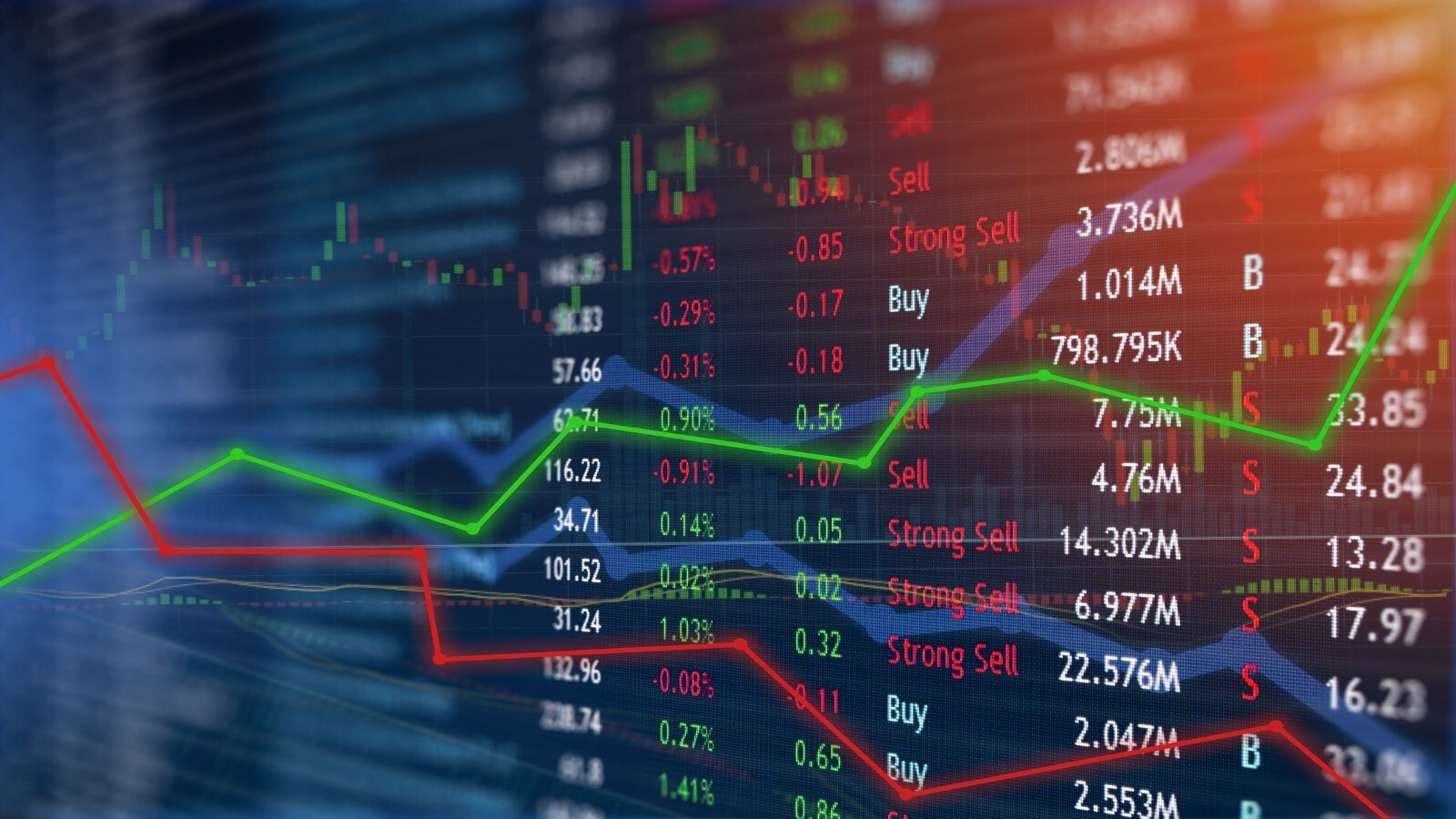No Bubble for Income Stocks
There is scant evidence that companies are in a cash bind that could interrupt tomorrow's dividends.

Profit and prosper with the best of Kiplinger's advice on investing, taxes, retirement, personal finance and much more. Delivered daily. Enter your email in the box and click Sign Me Up.
You are now subscribed
Your newsletter sign-up was successful
Want to add more newsletters?

Delivered daily
Kiplinger Today
Profit and prosper with the best of Kiplinger's advice on investing, taxes, retirement, personal finance and much more delivered daily. Smart money moves start here.

Sent five days a week
Kiplinger A Step Ahead
Get practical help to make better financial decisions in your everyday life, from spending to savings on top deals.

Delivered daily
Kiplinger Closing Bell
Get today's biggest financial and investing headlines delivered to your inbox every day the U.S. stock market is open.

Sent twice a week
Kiplinger Adviser Intel
Financial pros across the country share best practices and fresh tactics to preserve and grow your wealth.

Delivered weekly
Kiplinger Tax Tips
Trim your federal and state tax bills with practical tax-planning and tax-cutting strategies.

Sent twice a week
Kiplinger Retirement Tips
Your twice-a-week guide to planning and enjoying a financially secure and richly rewarding retirement

Sent bimonthly.
Kiplinger Adviser Angle
Insights for advisers, wealth managers and other financial professionals.

Sent twice a week
Kiplinger Investing Weekly
Your twice-a-week roundup of promising stocks, funds, companies and industries you should consider, ones you should avoid, and why.

Sent weekly for six weeks
Kiplinger Invest for Retirement
Your step-by-step six-part series on how to invest for retirement, from devising a successful strategy to exactly which investments to choose.
The voice, always edgy, was borderline breathless. “Jeff,” began Jack, a man in his seventies from Philadelphia who is a Kiplinger’s subscriber and regular caller, “some of my stocks are bothering me. Ya think I oughta sell AT&T and Verizon and American Electric Power? Whaddya think is going on?” This was on a day when the Dow Jones industrial average fell 106 points (less than 1%). But some of Jack’s stocks and other top-notch dividend payers, including utilities and real estate investment trusts, took far bigger hits.
Consider: In roughly two weeks, Verizon Communications (symbol VZ) fell from $53 to $48; American Electric (AEP) dropped from $50 to $46; and my favorite REIT, Realty Income (O), tumbled from its all-time high of $55 to $45 (prices are as of May 31).
The proximate causes were the frothy prices of these stocks (they had rocketed in April) and a sudden jump in interest rates. In just a month, the yield on ten-year Treasuries surged from 1.70% to 2.16%. Because rising rates could enhance the appeal of bonds for income-oriented investors, the decline in these scalding stock groups is not illogical, although a government bond paying 2.2% still isn’t competitive with a utility yielding 4% or a REIT at 5%.
From just $107.88 $24.99 for Kiplinger Personal Finance
Become a smarter, better informed investor. Subscribe from just $107.88 $24.99, plus get up to 4 Special Issues

Sign up for Kiplinger’s Free Newsletters
Profit and prosper with the best of expert advice on investing, taxes, retirement, personal finance and more - straight to your e-mail.
Profit and prosper with the best of expert advice - straight to your e-mail.
But what shocked me, and surely scares a guy like Jack, is how the retreat of dividend payers conjures up so much loose use of the dreaded word bubble. From CNBC to the blogs on Seeking Alpha to brokerage analysts’ commentaries, bubbles are everywhere—dividend bubbles, REIT bubbles, bond bubbles and now a new housing bubble. You’d think that the Nasdaq was back at 5000, inflation was surging, janitors were buying $800,000 McMansions with gains from money-losing Web firms, and Ben Bernanke was set to announce a big hike in short-term interest rates (the ones that are currently near zero).
Those would be, to quote a sensible definition of a bubble, events that “foster and amplify” wild herd behavior that culminates in a disaster. The original bubble, the blowup of the South Sea Company, lured Englishmen in 1720 to bet their spare pounds in a failed scheme to get rich trading with South America. South Sea shares soared some 800% in months and collapsed even more quickly. The affair led to hostilities between Britain and Spain as well as an economic meltdown. How does that correspond to an 8% correction in an electric utility index that, at its peak, was up 18% for the year? Or to a $10 fall in the shares of Realty Income, a growing REIT with secure earnings that began 2013 at $40 and ended May at $45? Folks, it doesn’t.
Don’t panic. Remember, most of you buy dividend stocks for the income and maybe a tad of appreciation. Sometimes, the stocks fall. But there is scant evidence that utilities, property-owning REITs, oil-and-gas pass-throughs and cash-rich industrial firms are in a bind that could result in an interruption in tomorrow’s dividends. I’m a bit more worried about mortgage REITs, which need higher long-term interest rates to recharge their sagging profit margins. But even the biggest of that breed, Annaly Capital Management (NLY), which at $14 is sitting at a four-year low, earns enough to cover its 45 cent quarterly dividend (although the payout may soon fall to 40 cents).
I did advise Jack that if his stocks were making him nervous, he should sell, even if it meant incurring a tax bill on his winners. But that doesn’t mean it’s a good idea to turn into a trader. Are you prescient enough to sell AT&T for $40 and buy it back at $35? And repeat the feat with other stocks?
The more critical issue is whether (to borrow a phrase from the policy wonks) there is an “existential threat” to the future of dividend-paying stocks. In a slow-growth, low-inflation economy in which companies are rich in cash, there isn’t—unless you see bubbles that aren’t bubbles.
Jeff Kosnett is a senior editor at Kiplinger’s Personal Finance.
Profit and prosper with the best of Kiplinger's advice on investing, taxes, retirement, personal finance and much more. Delivered daily. Enter your email in the box and click Sign Me Up.

Kosnett is the editor of Kiplinger Investing for Income and writes the "Cash in Hand" column for Kiplinger Personal Finance. He is an income-investing expert who covers bonds, real estate investment trusts, oil and gas income deals, dividend stocks and anything else that pays interest and dividends. He joined Kiplinger in 1981 after six years in newspapers, including the Baltimore Sun. He is a 1976 journalism graduate from the Medill School at Northwestern University and completed an executive program at the Carnegie-Mellon University business school in 1978.
-
 Dow Leads in Mixed Session on Amgen Earnings: Stock Market Today
Dow Leads in Mixed Session on Amgen Earnings: Stock Market TodayThe rest of Wall Street struggled as Advanced Micro Devices earnings caused a chip-stock sell-off.
-
 How to Watch the 2026 Winter Olympics Without Overpaying
How to Watch the 2026 Winter Olympics Without OverpayingHere’s how to stream the 2026 Winter Olympics live, including low-cost viewing options, Peacock access and ways to catch your favorite athletes and events from anywhere.
-
 Here’s How to Stream the Super Bowl for Less
Here’s How to Stream the Super Bowl for LessWe'll show you the least expensive ways to stream football's biggest event.
-
 What Fed Rate Cuts Mean For Fixed-Income Investors
What Fed Rate Cuts Mean For Fixed-Income InvestorsThe Fed's rate-cutting campaign has the fixed-income market set for an encore of Q4 2024.
-
 The Most Tax-Friendly States for Investing in 2025 (Hint: There Are Two)
The Most Tax-Friendly States for Investing in 2025 (Hint: There Are Two)State Taxes Living in one of these places could lower your 2025 investment taxes — especially if you invest in real estate.
-
 The Final Countdown for Retirees with Investment Income
The Final Countdown for Retirees with Investment IncomeRetirement Tax Don’t assume Social Security withholding is enough. Some retirement income may require a quarterly estimated tax payment by the September 15 deadline.
-
 What Tariffs Mean for Your Sector Exposure
What Tariffs Mean for Your Sector ExposureNew, higher and changing tariffs will ripple through the economy and into share prices for many quarters to come.
-
 Stock Market Today: S&P 500 Hits High After Verizon Earnings
Stock Market Today: S&P 500 Hits High After Verizon EarningsThe Nasdaq also notched a new high on Monday, while the Dow finished with a marginal loss.
-
 What Wall Street's CEOs Are Saying About Trump's Tariffs
What Wall Street's CEOs Are Saying About Trump's TariffsWe're in the thick of earnings season, and corporate America has plenty to say about the Trump administration's trade policy.
-
 Verizon Sails to the Top of the Dow After Earnings Beat: What to Know
Verizon Sails to the Top of the Dow After Earnings Beat: What to KnowVerizon stock is one of the best Dow Jones stocks Friday after the telecommunications giant beat estimates for its fourth quarter. Here's what you need to know.
-
 Stock Market Today: Stocks Struggle for Direction as Earnings Roll In
Stock Market Today: Stocks Struggle for Direction as Earnings Roll InWhile General Motors stock soared after earnings, GE Aerospace and Verizon slumped.